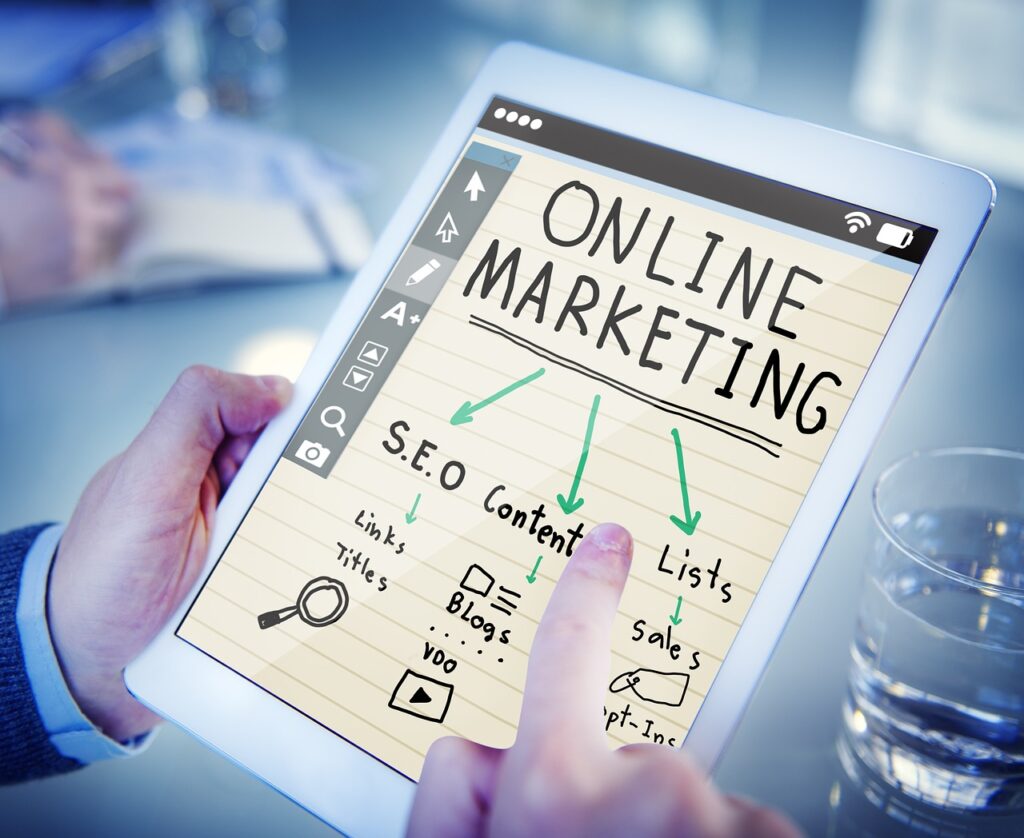Ultimate Guide Effective Digital Marketing Strategies for Small Businesses

Digital Marketing for Small Businesses
In 2024, digital marketing will be vital for small firms looking to make an impact. This article will look at the benefits of digital marketing, why it’s important for small businesses, and practical tactics for leveraging digital media successfully.
Why Digital Marketing is Crucial for Small Businesses
Digital marketing isn’t just a passing trend; it’s a fundamental strategy for achieving business success. Here’s why it’s essential:
1. Cost-Effective Advertising
Traditional advertising methods, such as print or TV ads, can be prohibitively expensive for small businesses. In contrast, digital marketing offers cost-effective options like social media ads and search engine marketing, allowing businesses to reach a broad audience without a significant investment.
2. Enhanced Online Visibility
Implementing effective Search Engine Optimization (SEO) and content marketing strategies can significantly boost your online presence. This increased visibility makes it easier for potential customers to find your business when they search for relevant products or services.
3. Precision Targeting
Digital marketing tools enable precise targeting of campaigns based on user interests, demographics, and behaviors. This precision ensures that your marketing messages reach the right audience, enhancing engagement and conversion rates.
4. Real-Time Analytics
One of the biggest advantages of digital marketing is the ability to monitor campaign performance in real-time. Analytics tools provide immediate feedback, allowing you to adjust and optimize strategies quickly for better results.
5. Improved Customer Engagement
Engaging with customers through social media marketing and email campaigns helps build stronger relationships. These interactions foster trust and increase customer loyalty.
Key Benefits of Digital Marketing for Small Businesses
1. Affordable Marketing Solutions
Digital marketing provides budget-friendly alternatives such as email marketing and social media management. These solutions allow businesses to connect with a wide audience without breaking the bank.
2. Broader Audience Reach
With digital marketing, businesses can extend their reach beyond local markets. Platforms like Facebook and Instagram facilitate connections with customers from various regions and even internationally.
3. Increased Brand Recognition
Consistent use of SEO, content marketing, and social media enhances brand visibility. This improved recognition helps establish your business as a trusted and reputable player in your industry.
4. Higher Conversion Rates
Targeted advertising and personalized content can significantly increase conversion rates. These methods are effective in turning website visitors into loyal customers.
5. Valuable Customer Insights
Digital marketing tools offer detailed insights into customer behavior and preferences. This data helps tailor your strategies to better meet your audience’s needs.
6. 24/7 Accessibility
Digital marketing efforts, including your website, social media profiles, and online ads, are always available. This constant accessibility allows potential customers to interact with your business at any time.
7. Competitive Advantage
Digital marketing helps small businesses compete with larger companies. By adopting innovative strategies and staying agile, you can gain a competitive edge in your industry.
8. Improved ROI
Digital marketing often yields a higher return on investment compared to traditional methods. Its cost-efficiency and the ability to track and optimize campaigns contribute to better financial outcomes.
9. Scalable Marketing Efforts
Digital marketing strategies are scalable, allowing you to start with a modest budget and expand as you see results. This flexibility supports growth and adaptability.
10. Enhanced Customer Retention
Regular updates, promotions, and personalized offers help maintain customer interest and loyalty, leading to improved retention rates.
Benefits of Digital Marketing for Specific Industries
1. Real Estate
In real estate, platforms like Instagram and Facebook are effective for showcasing properties. High-quality visuals and virtual tours attract potential buyers and sellers.
2. Startups
Startups can leverage digital marketing to build brand awareness and attract customers. Content marketing and social media advertising are particularly beneficial for gaining early traction.
3. B2B Businesses
For B2B companies, LinkedIn and email marketing are crucial for networking and lead generation. Content marketing and webinars help establish thought leadership and build business relationships.
4. Food and Beverage Industry
Restaurants and cafes use social media to engage with local customers. For example, a restaurant chain used Instagram Stories to share behind-the-scenes content and special promotions, driving increased foot traffic.
5. E-Commerce Retailers
E-commerce businesses benefit from Google Ads and retargeting strategies. An online retailer specializing in eco-friendly products saw significant sales growth through targeted ads.
6. Fitness and Wellness
Fitness trainers use YouTube and TikTok to share workout routines and health tips. Engaging video content and effective use of hashtags helped expand their audience and attract new clients.
7. Personal Finance Advisors
Finance advisors utilize content marketing and email newsletters to provide financial advice. Sharing valuable insights builds credibility and attracts clients.
8. Non-Profit Organizations
Non-profits employ social media campaigns and email marketing to raise awareness and funds. For instance, a wildlife conservation group promoted a fundraising event via Facebook Ads and Instagram posts, boosting donations.
9. Local Services
Local service providers, such as plumbers, benefit from local SEO and Google My Business listings. Optimizing these profiles and collecting positive reviews enhances local search visibility.
10. Educational Institutions
Educational institutions use content marketing and social media to attract prospective students. Sharing updates about campus life and academic programs increases engagement and enrollment.
Exploring the Benefits and Limitations of Digital Marketing
Benefits
- Cost Efficiency: Digital marketing strategies are generally more affordable than traditional methods, making them accessible for small businesses.
- Targeted Reach: Precise targeting ensures marketing efforts reach the most relevant audience.
- Measurable Results: Analytics tools provide detailed insights into campaign performance, supporting informed decision-making.
- Flexibility: Digital marketing campaigns can be adjusted in real time based on performance metrics.
Limitations
- High Competition: The digital space is competitive, requiring well-thought-out strategies to stand out.
- Rapid Changes: The digital marketing landscape evolves quickly, necessitating continuous learning and adaptation.
- Resource Intensive: Effective digital marketing requires time and expertise, which can be challenging for small teams.
Conclusion
Digital marketing offers tremendous opportunities for small businesses to succeed in a competitive environment. By employing effective strategies and staying informed about the latest trends, you can enhance your online presence, engage with your target audience, and achieve your marketing goals. Embrace digital marketing to unlock your business’s potential and drive growth.
Ultimate Guide Effective Digital Marketing Strategies for Small Businesses Read More »


